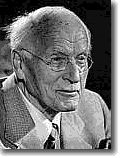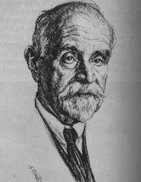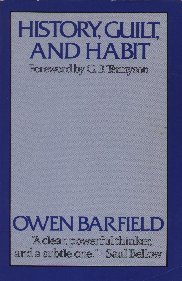
Jung

Whitehead

Teilhard de Chardin

Levy-Bruhl

| R.U.P. (Residue of Unresolved Positivism) |
Those Barfield accuses of succumbing to R.U.P. include the archetypal psychologist C. G. Jung, the philosopher Alfred North Whitehead, and geologist / theologian/ evolutionary thinker Teilhard de Chardin.1
"I can philosophize myself free from philosophical materialism quite easily; and so, I dare say, can you. . . ," Barfield remarks in History, Guilt, and Habit, but that does not mean we are free of its influence:
Our "Beta-Thinking . . . can convince itself that we participate the phenomena with the unconscious part of ourselves. But that has no epistemological significance. It can only have that to the extent that final participation is consciously experienced" (SA 137).after we have done the philosophizing and gone back to ordinary life, the materialism is still there in our very instruments of thoughts, and indeed of perception: it signifies that it is there in the meanings of the words we speak and think with, and notably so in the commonest words of all--words like "thing," "life," "man," "fact," "think," "perceive," and so on. It is not merely a habit but an ingrained habit. It is even what we call "common sense." (HGH 73)
| See in particular "The Force of Habit" (HGH 65-93), "The Time-Philosophy of Rudolf Steiner" (RCA 184-204). |
1In
Romanticism
Comes of Age, Barfield laments that
|